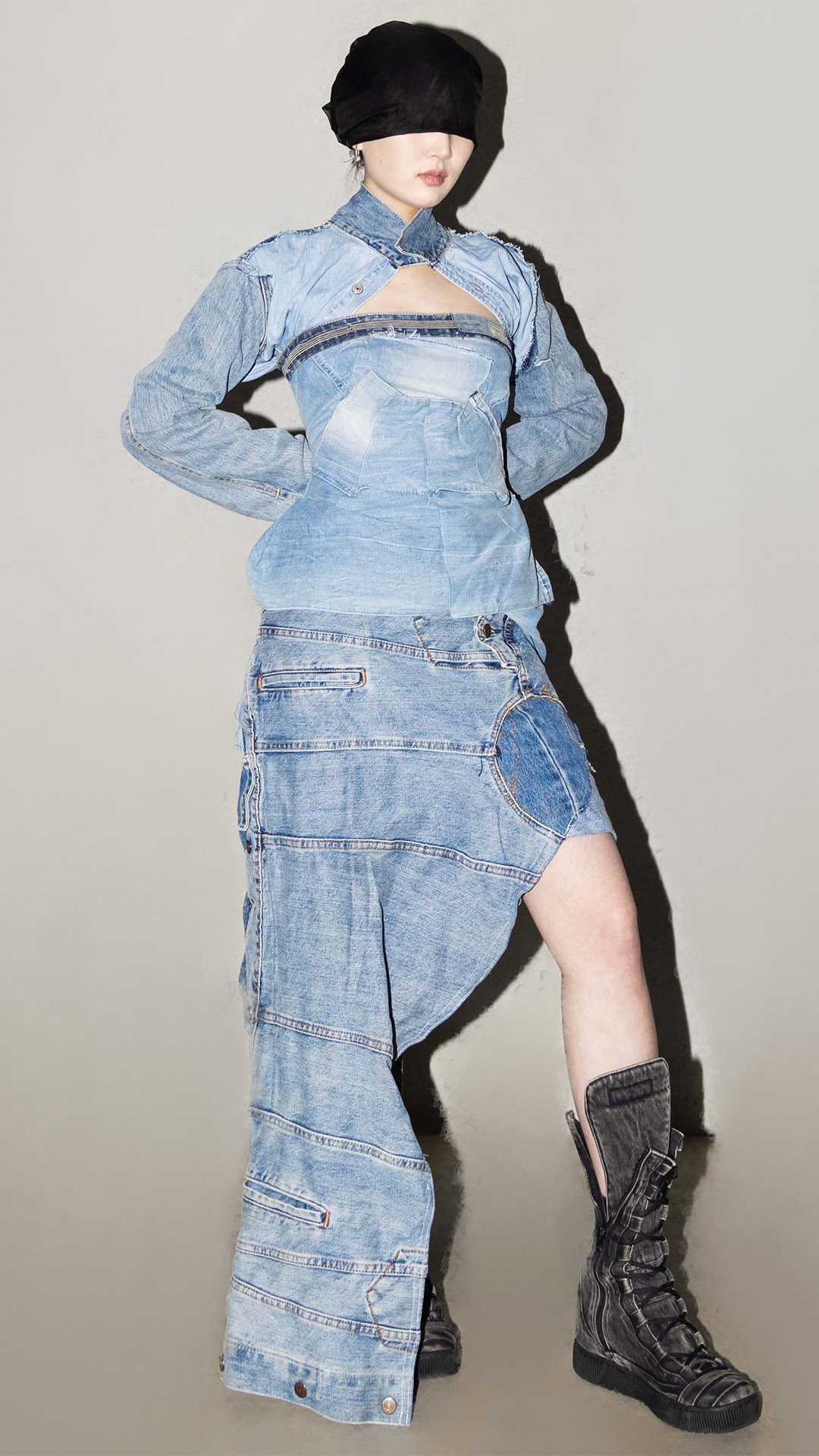
Deconstructing the Notion of Denim Through Avant-Garde Methods
This research investigates and responds to the wastefulness of denim through an experimental approach of deconstructing and reconstructing used denim garments. Denim is one of the most popular fabrics globally, accounting for one of the largest segments of the fashion industry. However, with their versatility and popularity, denim jeans come at a high cost to the environment; on average requiring 3,781 litres of water for one pair of standard jeans, which is equivalent to filling approximately 54 bathtubs. This environmental impact is intensified by the throwaway culture of fast fashion, including denim jeans.
This thesis responds to the wastefulness of the denim industry by investigating methods for recycling denim cloth, through approaches of deconstruction and reconstruction. Deconstruction as intertextuality, trace and différance as constructed by Derrida, alongside the practical analysis of deconstructive strategies in fashion design analysed by Maria Skivko as the conflict of form, function and ideology act as guiding principles for this research.




